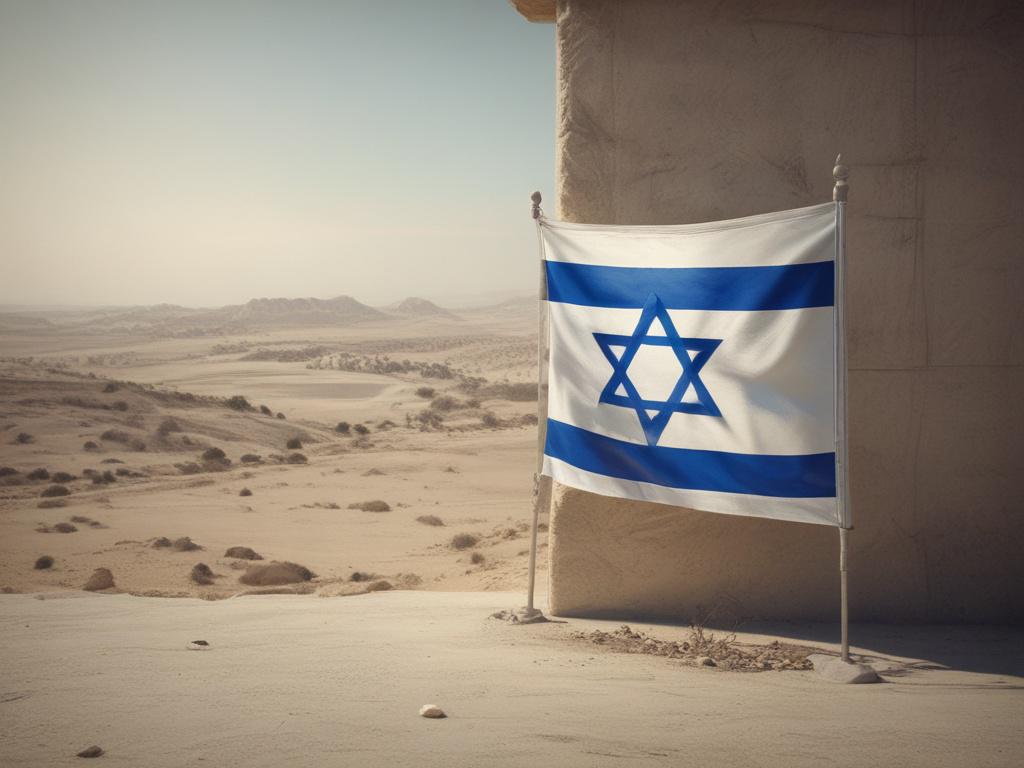
Join us for a deep dive into the heart of Israel's political history and modern governance. As one of the most dynamic and complex countries in the Middle East, Israel’s political landscape is shaped by a rich tapestry of historical events, cultural influences, and social movements. From its founding in 1948 to its current political climate, understanding the foundation of Israel's political history is essential for comprehending the nuances and challenges faced by the nation today. This exploration will provide readers with insights into the key milestones that have defined Israel's governance over the decades.
In examining the evolution of modern governance in Israel, we will highlight the significant transformations that have occurred, including shifts in leadership, political parties, and public opinion. The diverse voices of key players shaping today’s political discourse reflect the multifaceted nature of Israeli society. By delving into these elements, we aim to illuminate how historical contexts inform present-day policies and debates. Join us as we embark on this enlightening journey through Israel's political realm, where past and present intersect to shape a vibrant democratic future.
Understanding the foundations of Israel's political history
Israel's political landscape is deeply rooted in a complex tapestry of historical events, ideologies, and cultural influences. The establishment of the state in 1948 marked a pivotal moment in the region's history, as it emerged in the aftermath of World War II and the Holocaust, leading to an influx of Jewish immigrants seeking refuge and a homeland. This context set the stage for a unique political identity, characterized by a democratic framework juxtaposed with security concerns stemming from regional conflicts. From its inception, Israel's political history reflects the interplay between various ethnic and religious groups, and evolving geopolitical dynamics, as it strives to balance its identity as a Jewish state with its democratic values.
As we delve deeper into this rich history, we see how key events, such as the Arab-Israeli wars, shaped public opinion and influenced governance. The 1967 Six-Day War and the 1973 Yom Kippur War further intensified political challenges, pushing the nation to address issues of territory, peace, and coexistence. Throughout these turbulent times, the rise of political parties and movements—ranging from labor to right-wing factions—has directly impacted policy-making and national security. Analyzing these foundational moments gives us valuable insights into the intricate political fabric of Israel, revealing how historical narratives continue to influence contemporary governance and shaping the discourse in today's society. Join us for a deep dive into the heart of Israel's political history and modern governance, as we explore the foundations that underpin its vibrant political scene.
The evolution of modern governance in Israel
The evolution of modern governance in Israel reflects the complex interplay of historical, social, and political factors. Following its establishment in 1948, Israel adopted a parliamentary democracy, where the Knesset serves as the nation's legislative body. This framework allows for multiple political parties to represent diverse views, leading to coalition governments that often pivot on negotiations and compromises. Major events, such as the Six-Day War in 1967 and the Oslo Accords in the 1990s, significantly shaped public sentiment and influenced governmental policies. Each turning point led to shifts in power dynamics, prompting the emergence of new political movements and the re-evaluation of existing ideologies.
In recent years, the landscape of Israeli governance has undergone further transformation due to demographic shifts, social change, and regional tensions. The rise of social media and digital activism has also provided citizens with new platforms to voice their opinions and hold leaders accountable. As a result, issues such as security, immigration, and economic disparity dominate discussions in the Knesset and across the country. Political parties have adapted to these changes, with many focusing on specific issues like environmental sustainability and minority rights, which resonate strongly with the electorate. The ongoing evolution of governance in Israel continues to reflect the nation's resilience and commitment to addressing the complexities of a diverse society.
Key players shaping today’s political discourse in Israel
In contemporary Israel, several influential figures and parties play pivotal roles in shaping the political discourse. Prime Minister Benjamin Netanyahu, as a longtime leader, continues to significantly impact government policy and international relations. His Likud party champions right-wing ideologies, advocating for security-focused strategies in an increasingly volatile region. Alongside Netanyahu, figures like Yair Lapid of the Yesh Atid party and Naftali Bennett of the right-wing Yamina party actively contribute diverse perspectives, promoting debates on economics, social issues, and Israel's stance on the Palestinian question. The interactions among these key players highlight the dynamic nature of Israeli politics, where alliances often shift and new coalitions form in response to changing public sentiment.
Beyond party leaders, influential movements and advocacy groups also shape the narrative within Israel's political landscape. The Joint List, representing Arab parties, voices the concerns of Israel's Arab citizens and sparks essential discussions on minority rights and integration. Meanwhile, young activists and grassroots movements are increasingly leveraging social media platforms to amplify issues like climate change, economic disparity, and social justice, successfully engaging younger generations in politics. This rich tapestry of voices and viewpoints fosters a vibrant discourse in Israel, making it a compelling case study for those seeking to understand the complexities of modern governance and the ongoing evolution of its political narrative. Join us for a deep dive into the heart of Israel's political history and modern governance, as we explore these key influencers and their implications for the country's future.